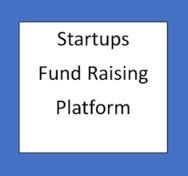Outreach, in its simplest form, refers to the process of extending support, resources, or information to people or communities in need. It can be a fundamental tool for creating meaningful connections, fostering social good, and making lasting change. In the context of organizations, outreach often involves engaging with a specific group of individuals or communities to provide support, education, or services. It can range from small grassroots efforts to large-scale initiatives.
In this article, we’ll explore the importance of outreach, its various forms, and how effective outreach can make a lasting impact.
The Importance of Outreach
Outreach is a critical function for many organizations, whether they are nonprofit, governmental, educational, or even businesses looking to engage with their communities. The value of outreach lies in its ability to:
- Increase Access to Resources: Many underserved communities lack access to essential services such as healthcare, education, or economic opportunities. Outreach efforts help bridge these gaps by providing resources and information to people who might not otherwise have access to them.
- Raise Awareness: Outreach can raise awareness about specific issues or causes, such as public health concerns, environmental challenges, or social justice movements. By informing the public, organizations can mobilize people to take action or change behaviors.
- Strengthen Communities: By engaging with individuals, organizations build trust and understanding, strengthening the social fabric of communities. Outreach is a tool for building relationships and networks that can have lasting benefits, such as increased civic participation, collaboration, and mutual support.
- Empower Individuals: Outreach can provide people with the knowledge, skills, and tools they need to improve their lives. Whether it’s through education programs, job training, or healthcare services, outreach often empowers individuals to take control of their own futures.
- Foster Collaboration: Effective outreach often involves partnering with local organizations, government agencies, and other stakeholders. These collaborations help amplify the impact of outreach programs and create a collective effort toward addressing community challenges.
Types of Outreach
Outreach efforts can take many forms, each suited to different goals and communities. Some of the most common types of outreach include:
- Community Outreach: This type of outreach focuses on connecting directly with individuals and groups in a particular geographic area or community. It often involves face-to-face interactions, such as town hall meetings, informational sessions, or volunteer programs. The goal is to address specific needs within that community, such as providing resources for low-income families or offering support for marginalized groups.
- Educational Outreach: Many organizations, especially those in the nonprofit or public sector, engage in educational outreach. This includes programs designed to inform and educate people on a particular issue or set of issues. It can take the form of workshops, seminars, webinars, or even distributing educational materials. Topics might include health awareness, financial literacy, or environmental conservation.
- Corporate Outreach: Businesses also engage in outreach, often through corporate social responsibility (CSR) programs. These initiatives might involve supporting local nonprofits, sponsoring community events, or providing grants and funding to social causes. Corporate outreach can improve a company’s reputation, foster goodwill in the community, and support sustainability efforts.
- Digital Outreach: With the rise of technology, digital outreach has become an essential component of many strategies. This type of outreach uses online platforms to connect with individuals, whether through social media, email campaigns, or virtual events. Digital outreach allows organizations to reach a global audience, promote causes, and share information in real time.
- Health Outreach: Public health organizations, medical practitioners, and NGOs frequently engage in health outreach. This can involve offering free screenings, health education, vaccination drives, and mental health support. Health outreach aims to improve public health outcomes by providing critical services and information to underserved populations.
- Advocacy Outreach: Advocacy groups use outreach to influence public policy or bring attention to social issues. This may involve mobilizing supporters to take action, such as participating in protests, writing to lawmakers, or signing petitions. Advocacy outreach is often the driving force behind legislative changes and social movements.
Strategies for Effective Outreach
For outreach to be effective, it’s essential to have a well-planned strategy. Below are some key elements for designing and executing successful outreach initiatives:
- Identify Your Audience: Knowing who you’re trying to reach is fundamental to outreach. Are you targeting a specific geographic area? A particular demographic? Identifying the needs, preferences, and challenges of your audience helps you tailor your message and approach.
- Set Clear Goals: Define what you hope to achieve through your outreach efforts. Are you trying to raise awareness, provide direct support, or inspire action? Setting clear, measurable goals will help you track progress and refine your strategy as needed.
- Build Partnerships: Successful outreach often involves collaborating with others. Building partnerships with local organizations, influencers, and community leaders can amplify your efforts and lend credibility to your initiatives.
- Utilize Multiple Channels: To reach the broadest audience, use a combination of outreach methods. Traditional methods, such as face-to-face events or flyers, can be paired with digital channels like social media, email, and websites. A multi-channel approach ensures that your message reaches people through various touchpoints.
- Be Culturally Competent: Outreach initiatives must be sensitive to cultural differences and community dynamics. Understanding the cultural context of your target audience and respecting local traditions and values is crucial for building trust and fostering meaningful connections.
- Follow Up and Maintain Engagement: Outreach should not be a one-time event. Building long-term relationships requires consistent follow-up and engagement. Whether through newsletters, follow-up events, or ongoing support, staying in touch with your audience is essential to maintaining momentum.
Measuring the Impact of Outreach
To assess the effectiveness of outreach programs, it’s important to have a system in place to measure their impact. Some common ways to measure outreach success include:
- Surveys and Feedback: Collecting feedback from participants can provide valuable insights into the effectiveness of your outreach efforts and areas for improvement.
- Engagement Metrics: For digital outreach, tracking metrics like website traffic, social media interactions, and email open rates can indicate how well your message is resonating.
- Outcome Tracking: In cases where outreach aims to provide direct services or support, tracking tangible outcomes, such as the number of people helped, health improvements, or educational achievements, is key to understanding impact.
- Long-term Changes: Outreach programs that aim to create long-term social or behavioral change may require years of monitoring to assess whether sustainable impacts have been achieved.
Conclusion
Outreach is a powerful tool for effecting change, whether at the community, organizational, or global level. It has the ability to connect people with vital resources, raise awareness about critical issues, and foster collaborations that can lead to long-lasting solutions. By understanding the different types of outreach and employing effective strategies, organizations and individuals can create meaningful, positive change that improves the lives of others.
NOTE: Obtain further insights by visiting the company’s official website, where you can access the latest and most up-to-date information:https://www.startengine.com/offering/outreach Disclaimer: This is not financial advice, and we are not financial advisors. Please consult a certified professional for any financial decisions.

